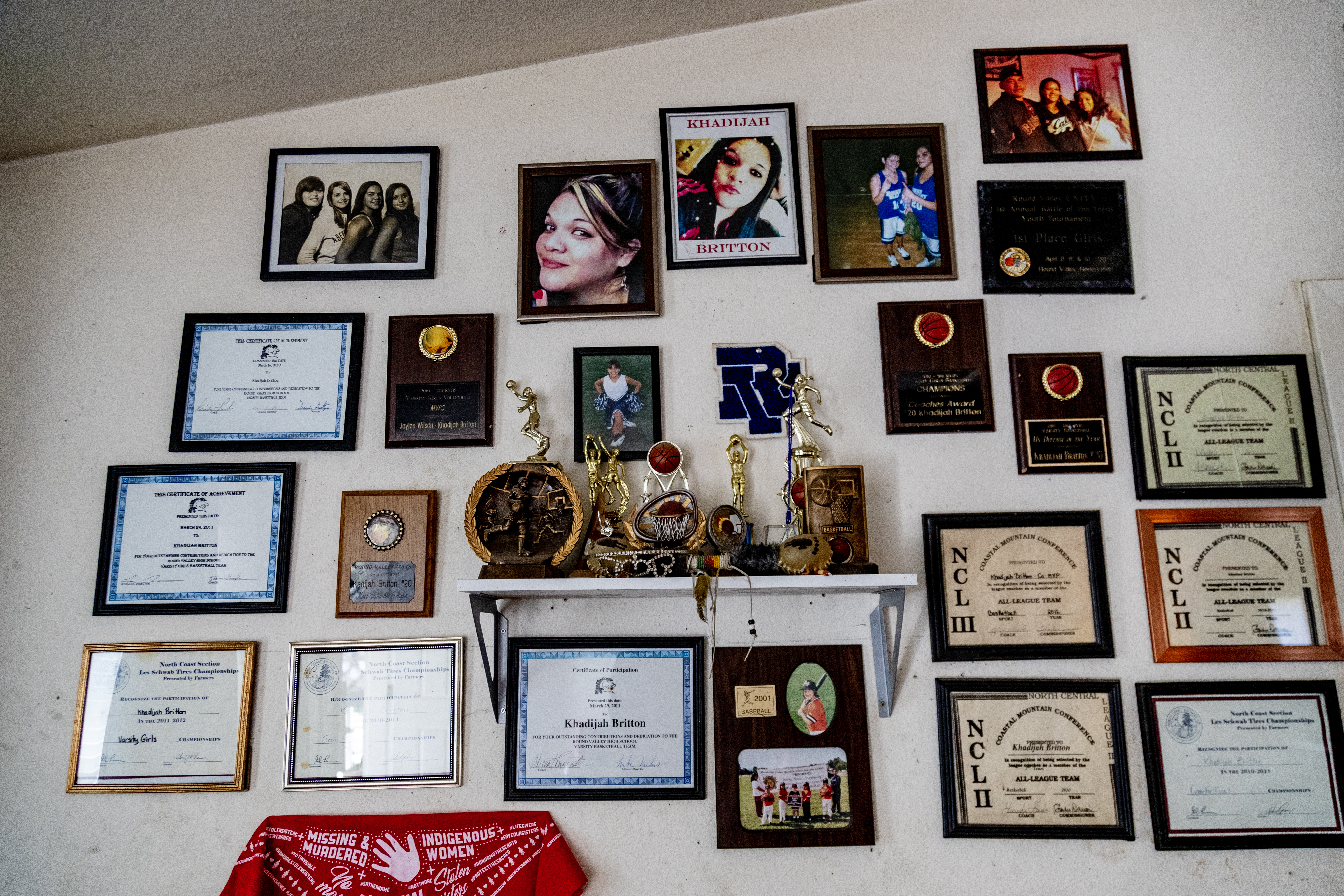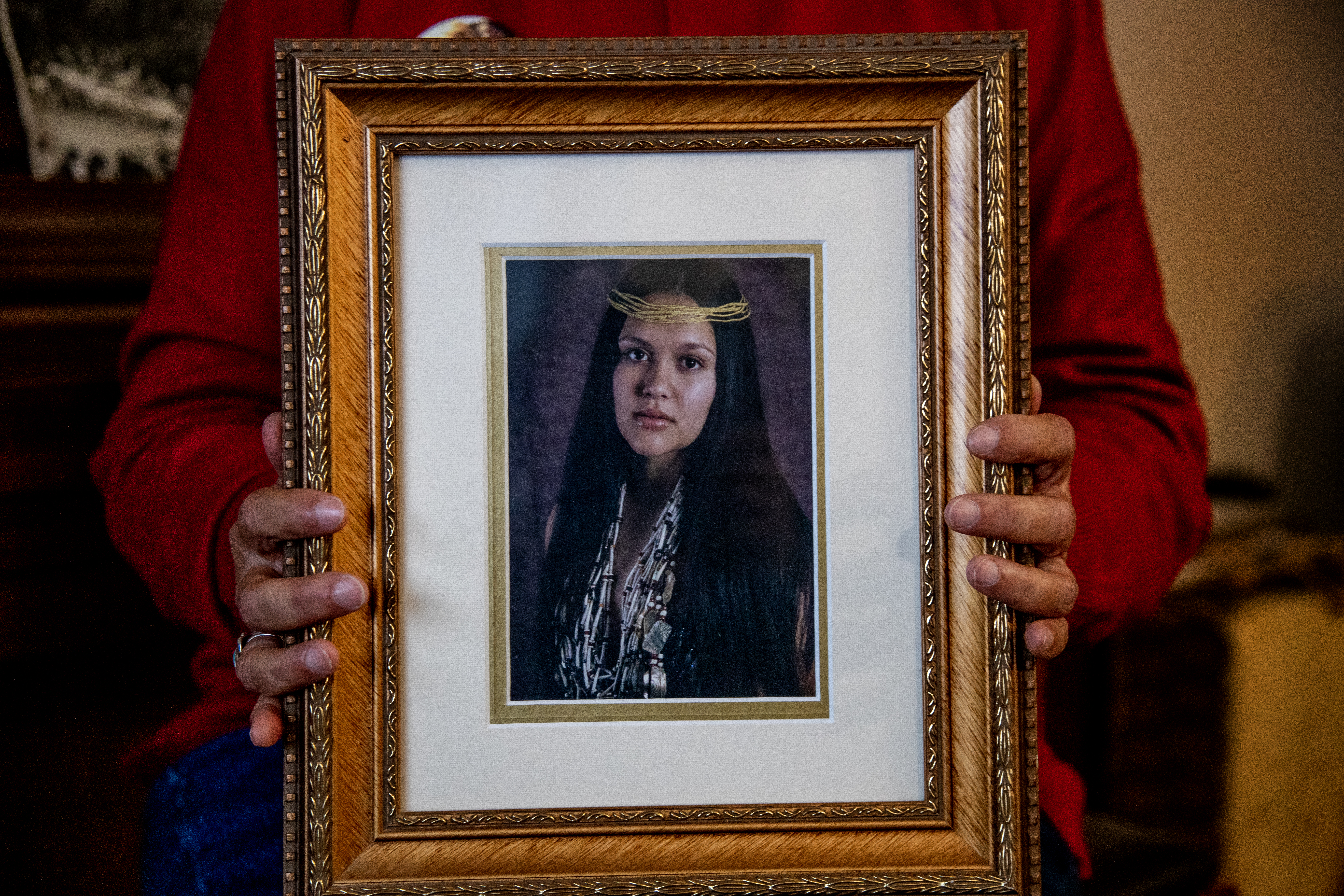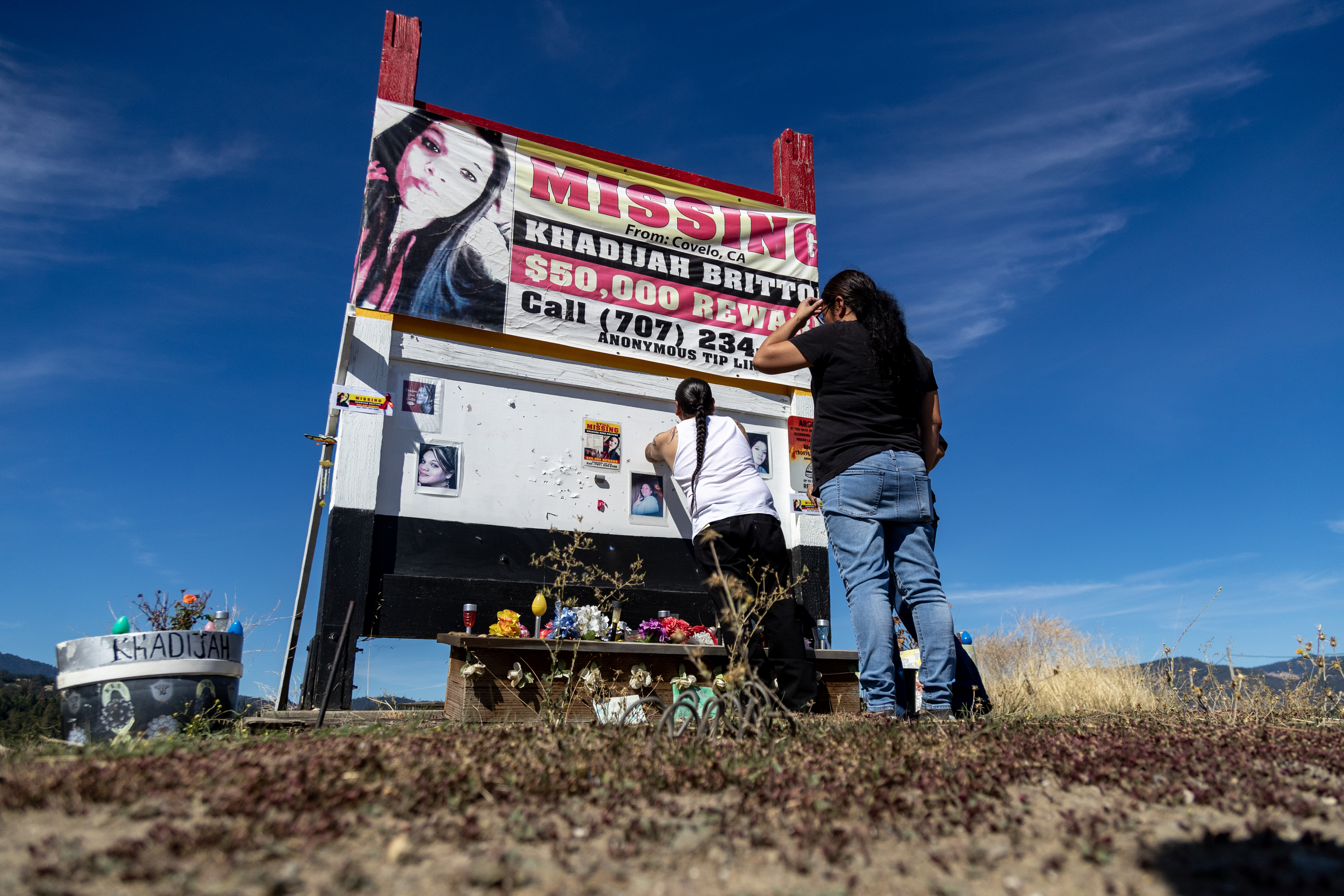After recent killings on the California reservation, tribes are asking for help to stop the violence
California politics
Hannah WileyMay 8, 2023
Even for a community already accustomed to a certain level of violence, the two brutal murders on a Northern California rural reservation this spring came as a shock.
Nicholas Shehli Whipple had been beaten so badly that the Round Valley Indian Tribal police were initially unaware that the 20-year-old had been shot. Three weeks later, the body of 16-year-old Ruby Sky Montelongo was discovered in a vacant field in Mendocino County
by her uncle, Gerald “Lij” Britton.
Her mother has disappeared. Then her nanny. A law officer fears she’s next
Lij Britton has been through this before. His daughter, Khadijah Britton, disappeared from the remote reservation in February 2018 after being “forced into a car at gunpoint by her ex-boyfriend,” according to the FBI. The province of Mendocino
Sheriff’s Department Sheriff’s Office
has a suspect in the case but with no body, officials say it is difficult to make an arrest. She was 23 when she disappeared.
The recent violence, along with the unsolved disappearance of Khadijah Britton, underscores the challenges California tribes face in defusing the crisis of missing and murdered Indigenous peoples. The centuries-long problem dates back to the colonialism of white settlers and the forced transfer of Indian children to boarding schools, exacerbated by a broken foster care system and the ravages of drugs, domestic violence and human trafficking.
“[Lij’s] daughter is missing, mine is murdered. Missing and murdered,” said Nikki Britton, Montelongo’s mother.

The two killings prompted Round Valley Indian Tribes to declare a state of emergency on April 16, just one day after Montelongo was found dead and less than a month after Whipple was killed.
The statement followed a similar statement made by the Yurok tribe in Del Norte and Humboldt counties in December 2021
follow after
the disappearance of Emmilee Risling, a 32-year-old mother of two who was last seen along the Klamath River in a densely wooded area not far from the Oregon border.
Incomplete data
makes make
it is difficult to determine the number of Indigenous people who are missing or killed, but federal officials estimate that some 4,200 cases remain unsolved nationwide.
Women and girls are disproportionately affected as they are often victims of human trafficking or domestic violence. The nonprofit Sovereign Bodies Institute recorded 183 cases of missing or murdered Native women and girls in California, according to a 2021 report, though experts say this is likely a significant undercount.
Randall Britton, president of Round Valley Indian Tribes, said the killings highlight the urgent need for increased investment in youth services and programs to better protect young members. the
tribes’
The emergency declaration aims to raise awareness about the violence plaguing California’s tribes, especially those in the northern half of the state, and draw attention to the lack of resources they have to deal with it.
“We’re not just looking for resources for more law enforcement. We also need resources for the recovery of our community,” said Randall Britton, a family member of Montelongo and Khadijah Britton.
The calls for help have reached the Capitol, where lawmakers took part in a series of events last week to learn more about the crisis and what solutions they can include in law.
May 1-5
The effort was led by Assemblyman James Ramos, a Highland Democrat and former president of the San Manuel Band of Mission Indians who made history in 2018 as the first California Native American elected to the legislature.
Ramos coordinated a press conference and public hearing on the crisis, along with a candlelight vigil at the Capitol that attracted hundreds of tribal members from across the state.
“The cases of missing and murdered Indigenous people continue to happen. This is not a thing of the past. This continues to happen today,” Ramos said on the convention floor as he presented a resolution declaring May a month to raise awareness of the issue. enlarge. . “California is moving in the wrong direction and we need allies in our fight to raise awareness and provide resources to California’s first people.”
::
Ruby Sky Montelongo was a fighter from the start.
Born at the Central California Women’s Facility in Chowchilla while Nikki Britton served a stint in prison, Montelongo helped change her mother’s life.
“She changed my life,” Nikki Britton said in a telephone interview with The Times. “Ruby was kind of a little miracle baby.”
Even as a teenager, Montelongo was a little thing, her mother said, barely five feet eight and 120 pounds. But she never shied away from a fight. She was a fast runner and played basketball at Round Valley High School. She wanted one
actress,
actor or some kind of artist.
Montelongo was an enrolled member of Round Valley Indian Tribes, but also had Cherokee ancestry, her mother said. She was very proud of her background and became invested in the movement to highlight violence against indigenous women due to the disappearance of her relative Khadijah.
“She was a straight little warrior woman, a warrior woman princess,” Nikki Britton said.
Montelongo was out with friends on the night of April 14 when a fight broke out. A group of girls would have jumped and
physically
attacked her, Nikki Britton said. Only one has been arrested, a 15-year-old who has been charged with murder, according to the Mendocino County.
sheriff’s department Sheriff’s Office
.
“It’s just painful to know she’s never going to walk through that door again. She’s not going to graduate with the class. She’s not going to stand there,” said Nikki Britton, adding that she’s pushing for more arrests.

“What’s the matter with our people?”
::
Despite joining the union as a free state, California’s first legislature passed a law in 1850 to legalize indentured labor of Native children. Tribal leaders say historical trauma fueled the current crisis.
Nearly 175 years later, they are calling on the state to pass legislation that will give them what they need to stop the violence.
They are urging lawmakers to pass bills Ramos wrote to improve public safety on tribal lands and earmark $200 million from the state budget for tribes to prevent more cases. One of Ramos’ bills would strengthen procedures for social workers and county officials
when children go missing in foster care, while another would give tribal police and courts access to the California Law Enforcement Telecommunications System, which tracks restraining orders.
Those efforts would add to laws Ramos passed in recent years to create a warning system for when Native people go missing and another system that directs the Justice Department to help California tribes fight the problem.
During their week in Sacramento, tribal officials also called for more sweeping changes to the state’s foster care system and for a review of a federal policy known as Public Law 280, which stripped the tribes of prosecutors for most crimes committed in their homeland. reservations take place.
Ramos and the tribal leaders who spoke at Wednesday’s vigil said this speaks to the momentum of the movement and the attention finally being paid to those who have been kidnapped or killed.
“Why should we come together and hold such a vigil to highlight public safety? Is it because our youth don’t have a bright future like others?” said Ramos at the event. “We’d say no. Our youth are the brightest future here in the state of California and it’s worth making sure we protect and raise their voices.”

As he spoke, the dome of the Capitol
For the first time
was lit up in red for the occasion, the color of the movement to draw attention to the issue. Several people in the crowd had painted red hands over their mouths and hundreds were holding red candles symbolizing the awareness campaign
.
Behind each speaker, the names and photos of dozens of victims flashed across a large screen set up to live stream the event. Among those commemorated was Khadijah Britton.
In an interview at his home in October, Lij Britton said Khadijah Britton was an MVP basketball player, an energetic and outspoken young woman. Her family remembers her as a protector, someone who is always ready to stand up for the bullied.
“She was my baby, my little girl,” said Lij Britton
who could not be reached by The Times on Friday
.
In the crowd
a
t the Capitol on Wednesday
was Anthony Flores, Whipple’s uncle, holding a large poster with his relative’s name and photo on it.
Flores said Whipple was a good kid, a “nice person” who grew up in rural California and was a member of the
Chatsel Dehe Wintun Nation
.
A suspect was arrested in late April in connection with Whipple’s murder, but Flores said he wants to see justice for any tribesmen who are missing or killed.
“We are being ignored and we don’t want to be ignored,” said Flores. “They have names. They were loved. They loved people too. And we miss them.”
Fernando Dowling is an author and political journalist who writes for 24 News Globe. He has a deep understanding of the political landscape and a passion for analyzing the latest political trends and news.



